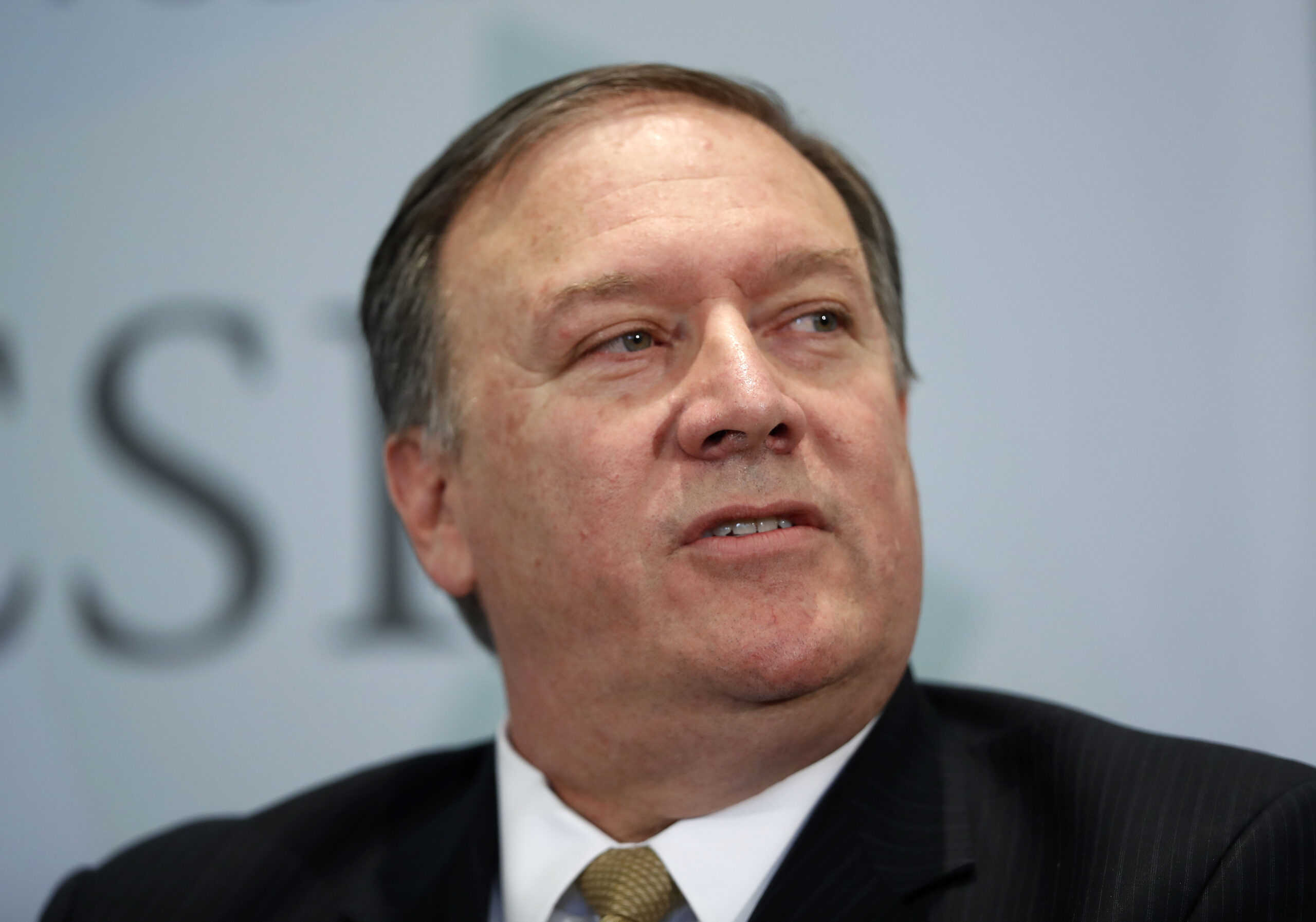Now that Trump has taken the United States out of the multi-national Iran nuclear weapons treaty, the question is what are we doing in its place?
We got the first stab at a Plan B from Secretary of State Mike Pompeo, who on Monday threatened to impose “the strongest sanctions in history” on Iran unless it takes dramatic steps, including permanently abandoning its nuclear program, halting missile tests and withdrawing military forces from Syria.
Of course, if that were the case, we wouldn’t have needed Plan A, which required threading the needle among European allies, Russia and China in a tentative alliance that, despite strains, seemed to be holding. Only Trump decided while a candidate that the original deal hadn’t gone far enough in non-nuclear areas. Thus, the deal.
There were critics who quickly called Pompeo’s new demands unrealistic and warned that they put the U.S. on a dangerous new collision course with Tehran—as well as with European allies who oppose Trump’s crackdown on Iran and who presumably will face potential U.S. sanctions from continuing to do business with the country.
Supporters said the speech outlined a robust approach to dealing with Tehran, following the administration’s decision to withdraw from an international deal in which Iran agreed to curb its nuclear weapons program in exchange for economic sanctions relief.
Pompeo stopped just short of issuing a military threat against Iran and again denounced the nuclear deal, formally known as the Joint Comprehensive Plan of Action, as a misguided attempt to prompt the Iranian government into better behavior on the regional and world stage.
The words were direct and certain: “The sting of sanctions will be painful if the regime does not change its course from the unacceptable and unproductive path it has chosen to one that rejoins the league of nations. These will indeed end up being the strongest sanctions in history when we are complete,” Pompeo told the Heritage Foundation. “Iran will be forced to make a choice: either fight to keep its economy off life support at home or keep squandering precious wealth on fights abroad. It will not have the resources to do both.”
In Iran, President Hassan Rohani said Tehran does not accept the U.S. making decisions for it, in a defiant response to Pompeo’s announcement of tough economic sanctions against Iran. “The world today does not accept that the United States decides for the world. Countries have their independence,” Rohani said.”Who are you to decide for Iran and the world?”
Columnist Josh Rogin in The Washington Post said Pompeo’s speech left huge questions about the “new strategy” unanswered. Pompeo could have outlined how the U.S. will continue to negotiate with European allies for a supplemental agreement to strengthen the Iran deal, but he did not. “That is certainly their decision to make. They know where we stand,” Pompeo said. “We understand our re-imposition of sanctions and the coming pressure campaign on the Iranian regime will pose financial and economic difficulties for a number of our friends. But you should know that we will hold those doing prohibited business in Iran to account.”
In all, Pompeo called on Iran to fulfill 12 huge demands—including removing its forces from Syria—but didn’t mention that Trump still wants to end U.S. involvement in that country. But Pompeo offered no specifics on what happens next if Iran doesn’t buckle under the new pressure and change its ways.
Pompeo did not mention Russia or China. He never really offered the Iranian view of why that country would not agree.
Perhaps we are seeing the Trump escalation to threat as part of imagined negotiation over smaller issues, which is how these people explain what may become a success with North Korea. But success in North Korea looks newly problematic, and Iran is no North Korea. It is not easy to isolate, and there is no unanimity among American allies and partners.
“This is what happens when the United States makes foreign policy based on Trump’s long-held instincts and biases and his obsessive urge to do the opposite of whatever the Obama administration did. The rest of the world is left to fall into line or suffer punishment at the hands of the United States. The fact that the European countries that are party to the Iran deal are even considering choosing punishment over cooperation should shock those who care about the transatlantic alliance,” argued Rogin.
It is even possible that despite sanctions, Iran remains in the deal, adhering to all the restrictions and inspections that now exist. But it still doesn’t solve the problem. Pompeo says he is focused on Iran’s aggression all over the Middle East.
Pompeo did not “present a diplomatic roadmap to achieve a new security architecture and a better security framework, a better deal, following Trump’s decision to end America’s participation” in the Iran deal. What Pompeo delivered fell far short of that.
Punishing Iran is not a successful path. Doing so alone obviously will not be successful either. Sanctions are not a strategy.
Pompeo also offered a warning to the Iranian government against restarting its nuclear program: “It will mean bigger problems, bigger problems than they’ve ever had before.”
Mark Dubowitz, who heads the hawkish Foundation for the Defense of Democracies and was an intense critic of the Iran deal who nonetheless advocated against scrapping it, told Politico that “Pompeo provided a clear Plan B: Intensify the Iranian regime’s ongoing liquidity and political crisis to force fundamental changes in its behavior across a range of malign activities with the promise of a big diplomatic deal if they do,” Dubowitz said in a statement issued through the foundation. “In short: Maximum diplomacy backed by maximum pressure.”
I’d watch for a more coherent strategy from Israel.



